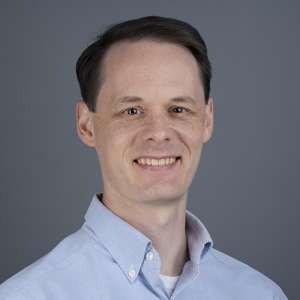The world is one long musical composition. We just have to be present and listen.
Christopher Chandler, assistant professor of music, recalls learning this idea, promoted by Canadian musician and author R. Murray Schafer, who coined the term “soundscape.”
“I remember thinking that this was a really profound way of engaging and listening to the world,” he said.
Chandler has been paying attention to the sounds around him throughout his life.
While having a conversation in his office, he is also attentive to the whir of the fan on his computer or the buzz of the overhead lights.
“All these things are always going on,” he said. “Just as in music, there are foreground, middle ground and background elements. Most often we are attending to the foreground elements that are important to us. But there are other layers we can pay attention to.”
The sounds of nature have inspired musical compositions throughout human history. Several of Chandler’s compositions connect to natural spaces and places both as a general source of inspiration and as direct sonic resource.
In his “Audubon Sketches,” he pairs woodwinds, brass, strings and percussion with field recordings of various soundscapes. He also asks the musicians to perform on conventional auxiliary instruments (melodicas, woodblocks and shakers) as well as less conventional ones (stones, pine cones and branches).
Chandler composed the work for the seven-member American Wild Ensemble, which recorded it live during the pandemic over the internet with musicians in different locations and time zones. It follows the sonic activity one might hear in a wilderness setting over the course of a day: katydids and crickets crossfade into buzzing cicadas over the course of the morning, bird calls drift along in the afternoon, and loon calls give way to an approaching rainstorm in the late evening.
Chandler hopes one day to pair a performance of “Audubon Sketches” with a viewing of the College’s edition of John James Audubon’s “Birds of America.”
In another of Chandler’s compositions, “The View from Here,” he draws from sounds he recorded in Shenandoah National Park: the drone of passing traffic on Skyline Drive, a ringing bell heard from afar, and the active sounds of wildlife just off a trailhead. The American Wild Ensemble recorded the piece, set to spectacular aerial video footage.
Chandler, who grew up along the Vernon River in Savannah, Ga., incorporates in his works sounds of his childhood, insects and water among them. He also has enjoyed exploring the Adirondacks, where he goes hiking and camping with his family. His wife, who hails from Maine, introduced him to the haunting cries of loons.
He holds a B.A. from the University of Richmond, M.M. from Bowling Green State University and a Ph.D. from the Eastman School of Music.
His work has been performed across the U.S., Canada, and France by leading ensembles including Eighth Blackbird, the American Wild Ensemble, the Oberlin Contemporary Music Ensemble, the Cleveland Chamber Symphony and Le Nouvel Ensemble Moderne. He is the co-founder and technical director of the Switch Ensemble, a group dedicated to the creation of new works for chamber ensemble and technology.
His recognition and awards include a BMI Student Composer Award, an ASCAP/SEAMUS Commission, two first prizes from the Austin Peay State University Young Composer's Award, winner of the American Modern Ensemble’s Annual Composition Competition, and the Nadia Boulanger Composition Prize from the American Conservatory in Fontainebleau, France.
Chandler advised Henry Bush ’22, a music major from Providence, R.I., who composed an environmental music piece that was presented at Founders Day. The combination of produced, recorded and processed sounds concludes with a soundscape from Van Vranken Avenue just north of campus.
This spring, Chandler is teaching a new class, “Soundscapes: The Environment, Acoustic Ecology and Music,” in which he encourages students to listen anew and make creative use of their soundscape recordings.
“If students come away from the course with a different orientation toward sound in their lives, it will be a success,” he said. “It’s a great life skill to have, an ability to be present fully, which is something that can be somewhat lacking these days.”

